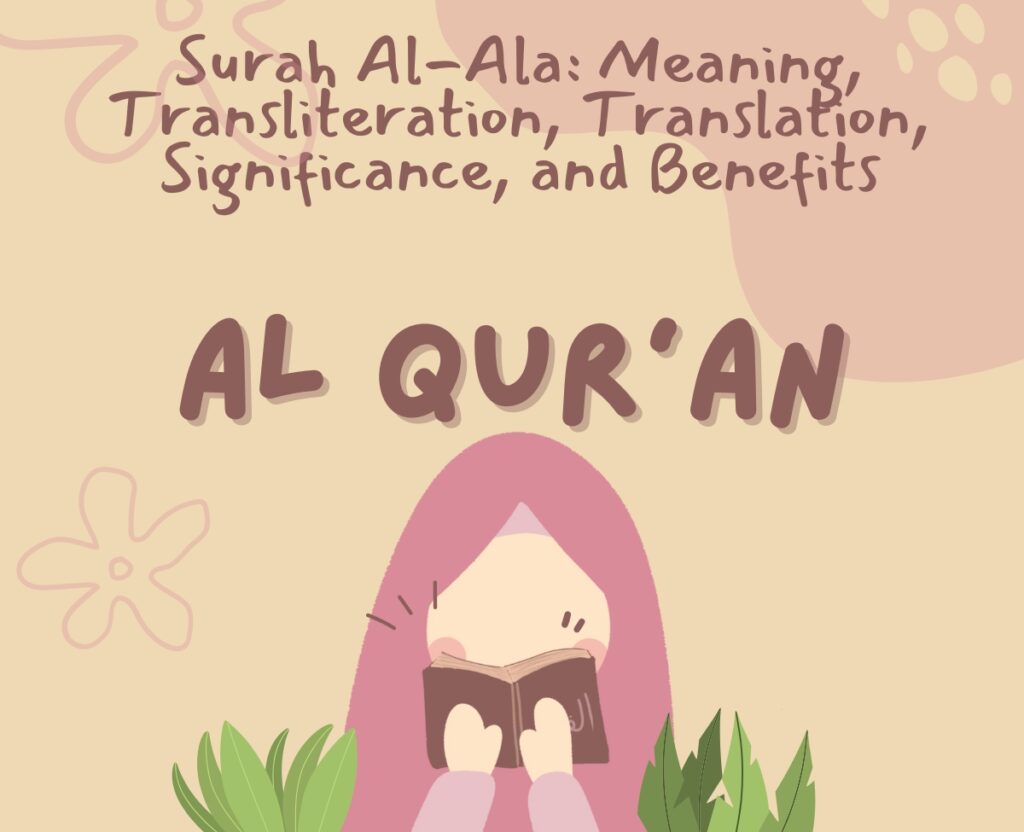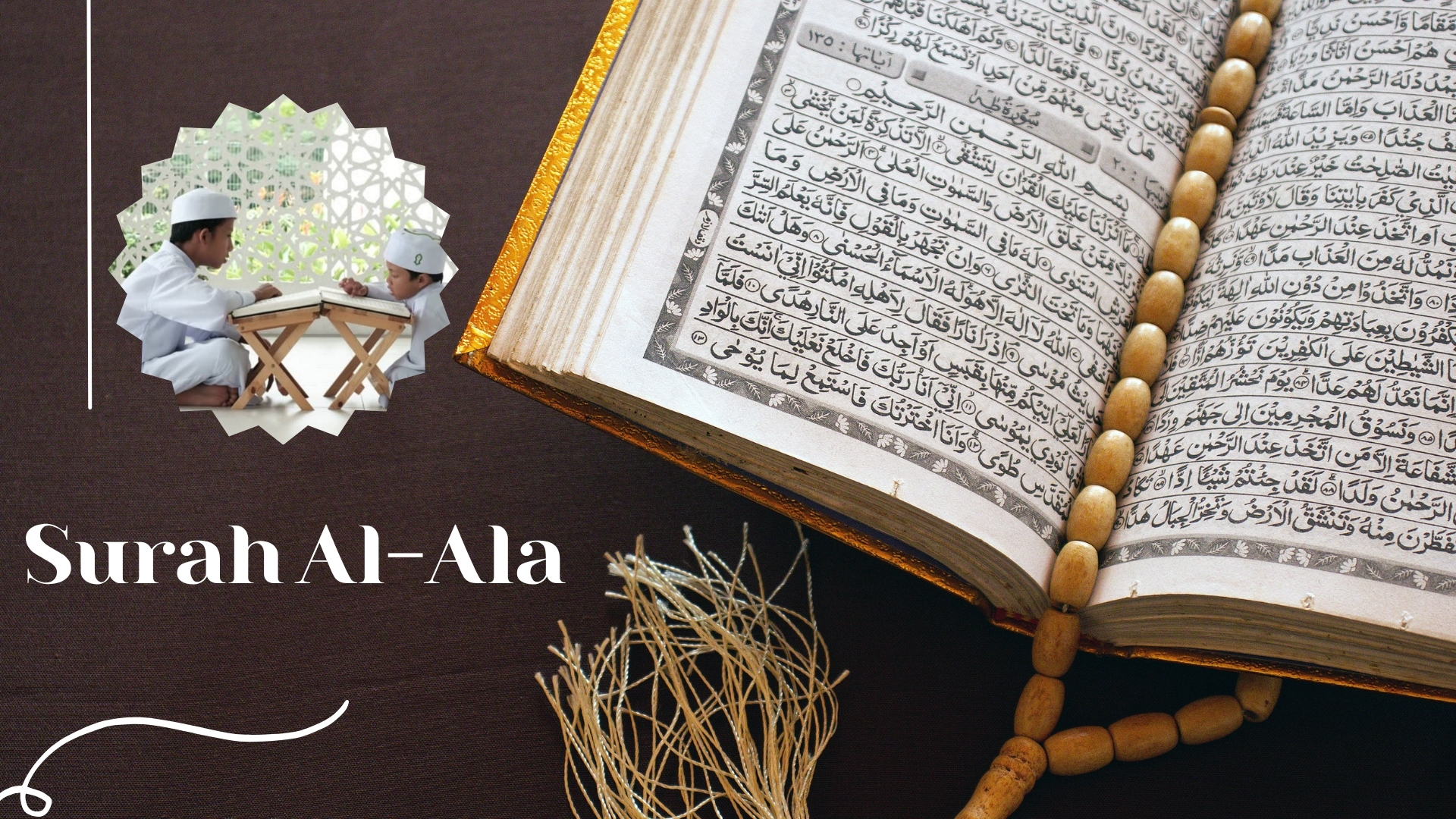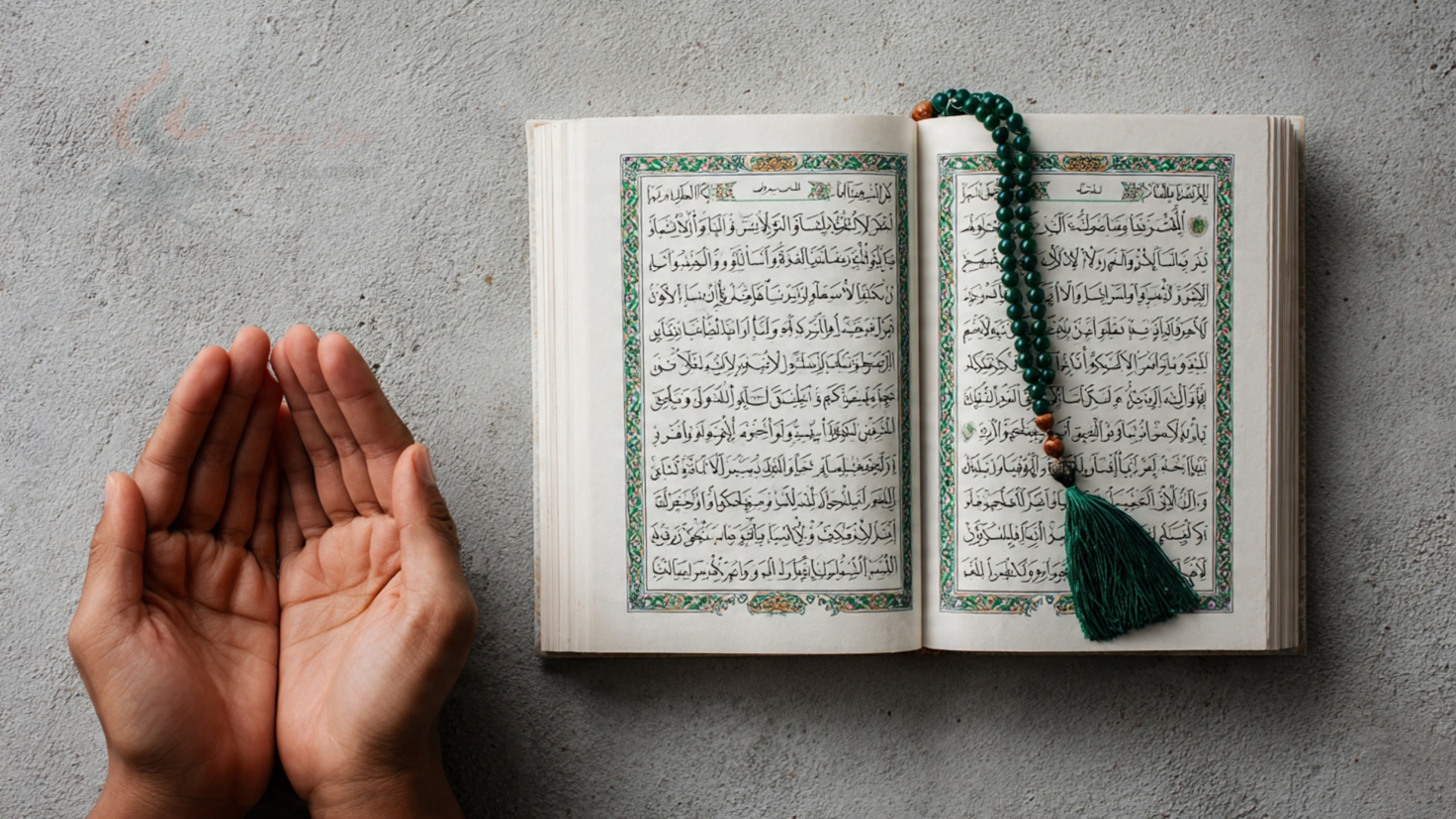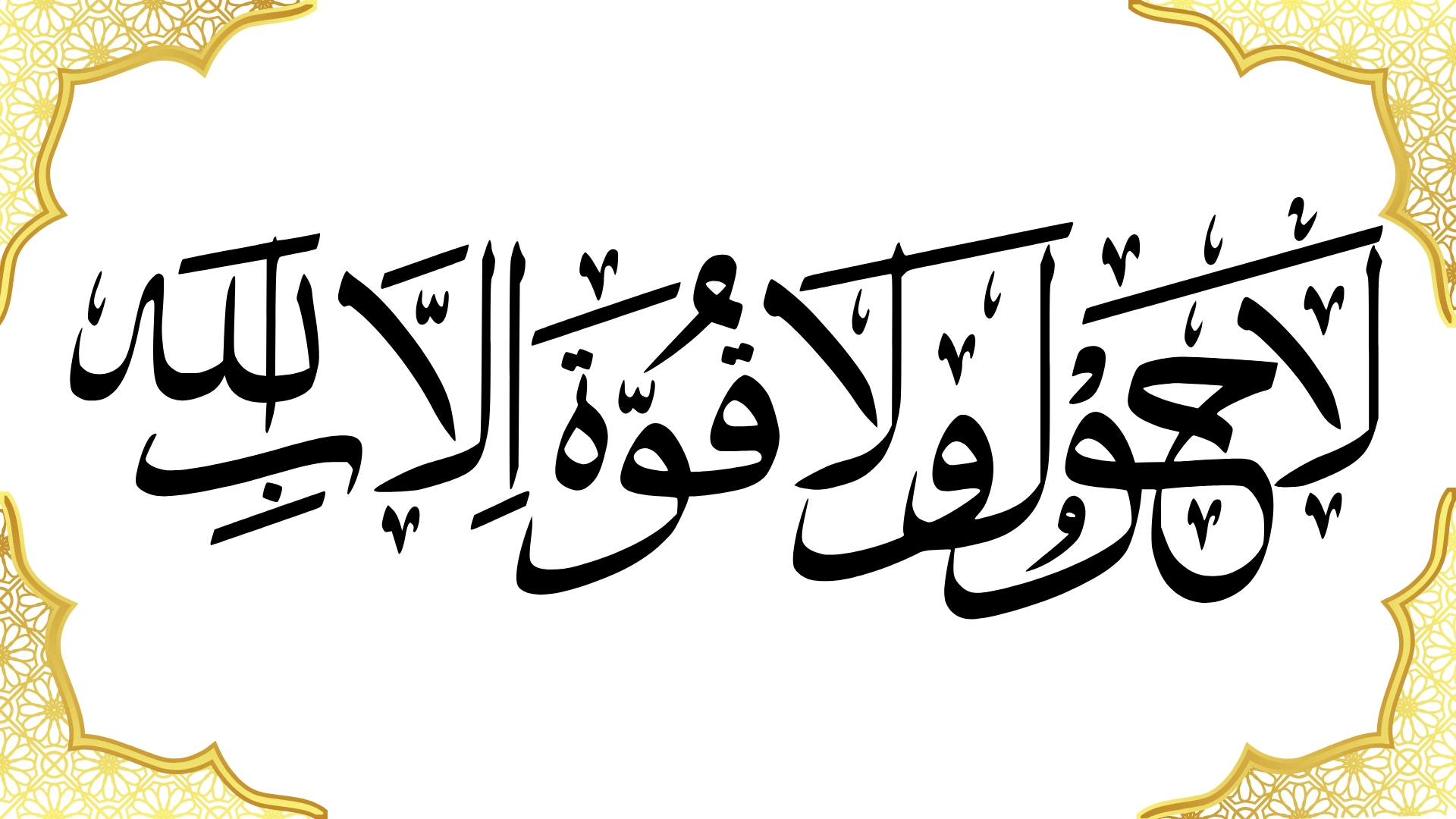Surah Al-Ala is the 87th chapter of the Quran, revealed in Makkah. It consists of 19 verses that emphasize Allah’s greatness, creation, and human accountability. The surah begins by commanding believers to glorify the Most High and reflect on the perfection of His actions. It offers moral guidance and reassures the Prophet of divine assistance in delivering the Quran’s message.
They emphasize its role in affirming Tawhid, recounting Allah’s creation, and presenting a clear path to spiritual success. Researchers have also noted the surah’s rhythmic beauty, often recited in significant prayers. Previous studies link its teachings to earlier scriptures, underlining the Quran’s continuity with past revelations. The surah inspires reflection on life’s purpose and warns against worldly distractions.
Surah Al-Ala verses guide us toward living with gratitude and mindfulness. Engage with this surah, and you might unveil a sacred roadmap to both worldly balance and eternal fulfillment. Below, we explore its meaning, significance, and benefits through a detailed analysis.
| Aspect | Details |
| Chapter Name | Surah Al-Ala (The Most High) |
| Chapter Number | 87 |
| Revealed In | Makkah |
| Number of Verses | 19 |
| Key Themes | – Glorification of Allah’s greatness |
| – Reflection on His perfect creation |
What Does “Al-Ala” Mean?
The title “Al-Ala” translates to “The Most High,” reflecting one of Allah’s greatest attributes. This name highlights the supremacy of Allah’s essence, actions, and qualities. The surah begins with a call to glorify Allah, emphasizing His transcendence over all creation.
The Context of Revelation
Surah Al-Ala belongs to the early Makkan period. This was a time when the Prophet Muhammad (peace be upon him) was introducing the fundamental tenets of monotheism to Quraysh, the polytheistic tribes of Makkah. The surah reassured the Prophet, encouraged his mission, and warned the disbelievers of their ultimate accountability.
Composition and Structure
The surah is simple yet eloquent, divided into thematic sections:
- Reassurance for the Prophet: Verses 6-7 assure the Prophet of divine support in preserving the Quran’s message.
- Confirmation of Eternal Truth: Verses 16-19 emphasize the transitory nature of worldly life and link the surah’s guidance to earlier scriptures, including those of Abraham and Moses.

Significance of Surah Al-Ala
Embodiment of Tawhid
The surah centers on Tawhid, the oneness of Allah. It portrays Him as the sole Creator, Sustainer, and Judge. This message was revolutionary in polytheistic Makkah and remains the foundation of Islamic belief today.
Relevance in Worship
Surah Al-Ala carries remarkable virtues. The Prophet Muhammad (peace be upon him) was known to recite it during Friday, Eid, and Witr prayers. Its rhythmic verses and profound meanings make it especially significant in acts of devotion.
Reminder of Accountability
FThis reminder instills humility and mindfulness in daily actions.
Assurance for Believers
The surah offers solace by affirming Allah’s mercy and guidance. It highlights that difficulties in following divine commandments will lead to ultimate ease and success.
Surah Al-Ala Transliteration and Translation
بِسۡمِ ٱللَّهِ ٱلرَّحۡمَٰنِ ٱلرَّحِيمِ
Bismillah hir rahman nir raheem
شروع اللہ کے نام سے جو بڑا مہربان نہایت رحم والا ہے
In the name of Allah, the Entirely Merciful, the Especially Merciful.
سَبِّحِ ٱسۡمَ رَبِّكَ ٱلۡأَعۡلَى-1
Sabbihisma Rabbikal A’laa
اپنے رب کے نام کی پاکی بیان کروجو سب سے بلند ہے۔
Exalt the name of your Lord, the Most High,
ٱلَّذِي خَلَقَ فَسَوَّىٰ-2
Allazee khalaqa fasawwaa
جس نے پیدا کرکے ٹھیک بنایا۔
Who created and proportioned
وَٱلَّذِي قَدَّرَ فَهَدَىٰ-3
Wallazee qaddara fahadaa
اور جس نے( اس کا)اندازہ ٹہرایا (پھر اس کو) رستہ بتایا
And who destined and then] guided
وَٱلَّذِيٓ أَخۡرَجَ ٱلۡمَرۡعَىٰ-4
Wallazeee akhrajal mar’aa
اور جس نے چارہ اگایا
And who brings out the pasture
فَجَعَلَهُۥ غُثَآءً أَحۡوَىٰ-5
Faja’alahoo ghusaaa’an ahwaa
پھر اس کو سیاہ رنگ کا کوڑا کر دیا
And [then] makes it black stubble.
سَنُقۡرِئُكَ فَلَا تَنسَىٰٓ-6
Sanuqri’uka falaa tansaaa
ہم تمہیں پڑھا دیں گے کہ تم فراموش نہ کرو گے
We will make you recite, [O Muhammad], and you will not forget,
إِلَّا مَا شَآءَ ٱللَّهُۚ إِنَّهُۥ يَعۡلَمُ ٱلۡجَهۡرَ وَمَا يَخۡفَىٰ-7
Illaa maa shaaa’al laah; innahoo ya’lamul jahra wa maa yakhfaa
مگر جو خدا چاہے۔ وہ کھلی بات کو بھی جانتا ہے اور چھپی کو بھی
Except what Allah wills. Indeed, He knows what is declared and what is hidden.
وَنُيَسِّرُكَ لِلۡيُسۡرَىٰ-8
Wa nu-yassiruka lilyusraa
ہم تم کو آسان طریقے کی توفیق دیں گے
And we will ease you toward ease.
فَذَكِّرۡ إِن نَّفَعَتِ ٱلذِّكۡرَىٰ-9
Fazakkir in nafa’atizzikraa
سو جہاں تک نصیحت (کے) نافع( ہونے کی امید) ہو نصیحت کرتے رہو
So remind, if the reminder should benefit
سَيَذَّكَّرُ مَن يَخۡشَىٰ-10
Sa yazzakkaru maiyakhshaa
جو خوف رکھتا ہے وہ تو نصیحت پکڑے گا
He who fears [Allah] will be reminded.
وَيَتَجَنَّبُهَا ٱلۡأَشۡقَى- 11
Wa yatajannabuhal ashqaa
اور (بےخوف) بدبخت پہلو تہی کرے گا
But the wretched one will avoid it –
ٱلَّذِي يَصۡلَى ٱلنَّارَ ٱلۡكُبۡرَىٰ -12
Allazee yaslan Naaral kubraa
جو (قیامت کو) بڑی (تیز) آگ میں داخل ہو گا
[He] who will [enter and] burn in the greatest Fire,
ثُمَّ لَا يَمُوتُ فِيهَا وَلَا يَحۡيَىٰ-13
Summa laa yamootu feehaa wa laa yahyaa
پھر وہاں نہ مرے گا اور نہ جئے گا
Neither dying therein nor living.
قَدۡ أَفۡلَحَ مَن تَزَكَّىٰ-14
Qad aflaha man tazakkaa
بے شک وہ مراد کو پہنچ گیا جو پاک ہوا
He has certainly succeeded who purifies himself
وَذَكَرَ ٱسۡمَ رَبِّهِۦ فَصَلَّىٰ-15
Wa zakaras ma Rabbihee fasallaa
اور اپنے پروردگار کے نام کا ذکر کرتا رہا اور نماز پڑھتا رہا
And mentions the name of his Lord and prays.
بَلۡ تُؤۡثِرُونَ ٱلۡحَيَوٰةَ ٱلدُّنۡيَا-16
Bal tu’siroonal hayaatad dunyaa
مگر تم لوگ تو دنیا کی زندگی کو اختیار کرتے ہو
But you prefer the worldly life,
وَٱلۡأٓخِرَةُ خَيۡرٞ وَأَبۡقَىٰٓ-17
Wal Aakhiratu khairunw wa abqaa
حالانکہ آخرت بہت بہتر اور پائندہ تر ہے
While the Hereafter is better and more enduring.
إِنَّ هَٰذَا لَفِي ٱلصُّحُفِ ٱلۡأُولَىٰ- 18
Inna haazaa lafis suhu fil oolaa
یہ بات پہلے صحیفوں میں (مرقوم) ہے
Indeed, this is in the former scriptures,
صُحُفِ إِبۡرَٰهِيمَ وَمُوسَىٰ- 19
Suhufi Ibraaheema wa Moosaa
(یعنی) ابراہیم اور موسیٰ کے صحیفوں میں ﴿
The scriptures of Abraham and Moses.
Benefits of Surah Al-Ala
Encourages Spiritual Growth
The opening verses inspire believers to glorify Allah in every aspect of life. By acknowledging His supreme power, individuals cultivate gratitude and spiritual clarity.
Provides Reassurance
Believers draw strength from Allah’s promise to support their efforts. This aligns with the Quran’s broader themes of patience and reliance upon Allah.
Enhances Worship Practices
The surah’s concise yet impactful message deepens the understanding of prayer and remembrance.
Strengthens Faith in Divine Will
By affirming Allah’s control over memory and destiny, the surah strengthens trust in His plans. It reassures believers that nothing occurs without divine wisdom.
Boosts Mental Resilience
Reciting or listening to Surah Al-Ala has therapeutic benefits. Studies have shown that Quranic recitation can reduce stress and promote psychological peace. The serenity derived from Surah Al-Ala fosters emotional resilience in challenging times.
Modern-Day Applications
Surah Al-Ala remains relevant across generations. Its themes address existential questions while offering timeless solutions. Here are its modern implications:
- Environmental Responsibility: The depiction of nature as Allah’s creation calls for mindful stewardship of the Earth.
- Purpose-Driven Living: The surah encourages reflection, helping individuals align personal goals with divine principles.
- Mindful Consumption: The reminder of life’s transience discourages material greed, cultivating a culture of gratitude and moderation.
Conclusion
Surah Al-Ala bridges the divine and the temporal, reminding humanity of its place within Allah’s creation. Amid technological advancements and societal complexities, the surah’s timeless wisdom finds renewed relevance. It offers spiritual nourishment for modern lives, affirming that true success lies in purity, gratitude, and vigilance for the Hereafter.
By internalizing its teachings, one can achieve balance between material pursuits and spiritual obligations, between worldly engagements and eternal aspirations. Surah Al-Ala encourages mindfulness, urging believers to glorify Allah not just in words but through action and intention.
Its verses carry a universal message of hope and responsibility, serving as a guiding light for all who seek truth and fulfillment.




